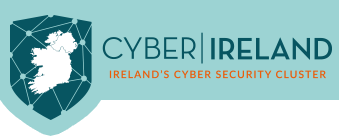- Knowledge of computer networking concepts and protocols, and network security methodologies.
- Knowledge of risk management processes (e.g., methods for assessing and mitigating risk).
- Knowledge of laws, regulations, policies, and ethics as they relate to cybersecurity and privacy.
- Knowledge of cybersecurity and privacy principles.
- Knowledge of cyber threats and vulnerabilities.
- Knowledge of specific operational impacts of cybersecurity lapses.
- Knowledge of concepts and practices of processing digital forensic data.
- Knowledge of new and emerging information technology (IT) and cybersecurity technologies.
- Knowledge of Insider Threat investigations, reporting, investigative tools and laws/regulations.
- Knowledge of cyber defense and information security policies, procedures, and regulations.
- Knowledge of Payment Card Industry (PCI) data security standards.
- Knowledge of Personal Health Information (PHI) data security standards.
- Knowledge of laws, policies, procedures, or governance relevant to cybersecurity for critical infrastructures.
- Knowledge of intelligence gathering principles, policies, and procedures including legal authorities and restrictions.
- Knowledge of business or military operation plans, concept operation plans, orders, policies, and standing rules of engagement.
- Knowledge of foreign disclosure policies and import/export control regulations as related to cybersecurity.
- Knowledge of privacy disclosure statements based on current laws.
Cyber Legal Advisor
Provides legal advice and recommendations on relevant topics related to cyber law.
- Skill in communicating with all levels of management including Board members (e.g., interpersonal skills, approachability, effective listening skills, appropriate use of style and language for the audience).
- Ability to monitor and assess the potential impact of emerging technologies on laws, regulations, and/or policies.
- Advocate organization's official position in legal and legislative proceedings.
- Evaluate contracts to ensure compliance with funding, legal, and program requirements.
- Evaluate the effectiveness of laws, regulations, policies, standards, or procedures.
- Interpret and apply laws, regulations, policies, standards, or procedures to specific issues.
- Resolve conflicts in laws, regulations, policies, standards, or procedures.
- Acquire and maintain a working knowledge of constitutional issues which arise in relevant laws, regulations, policies, agreements, standards, procedures, or other issuances.
- Conduct framing of pleadings to properly identify alleged violations of law, regulations, or policy/guidance.
- Develop guidelines for implementation.
- Provide legal analysis and decisions to inspectors general, privacy officers, oversight and compliance personnel regarding compliance with cybersecurity policies and relevant legal and regulatory requirements.
- Evaluate the impact of changes to laws, regulations, policies, standards, or procedures.
- Provide guidance on laws, regulations, policies, standards, or procedures to management, personnel, or clients.
- Facilitate implementation of new or revised laws, regulations, executive orders, policies, standards, or procedures.
- Prepare legal and other relevant documents (e.g., depositions, briefs, affidavits, declarations, appeals, pleadings, discovery).
